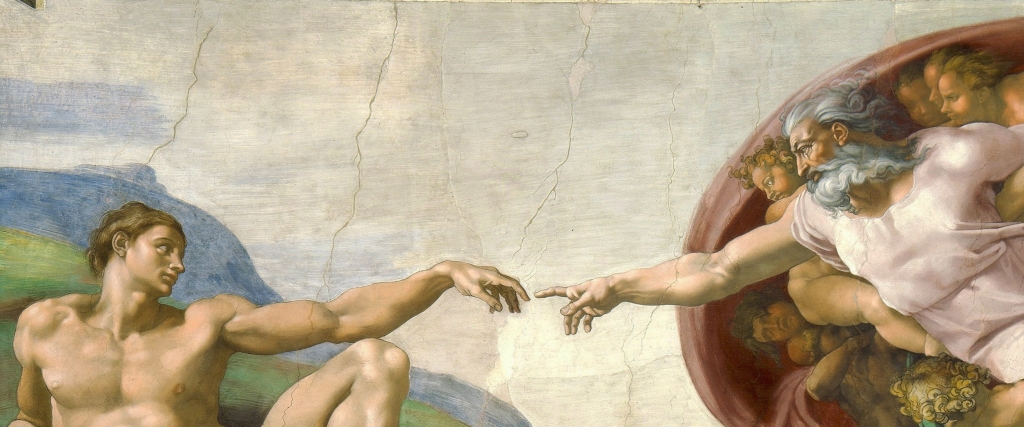Imagine yourself taking a stroll in a garden, and therein you come across a puddle of water, and within that puddle you observe an ant struggling to come out of the water; you realize that if you were to grasp the ant by means of your hands or fingers to take it out of the water, you might end up crushing the ant. Therefore, you take a fallen leaf, lying on the ground near your feet, and shape it in the form of a cup, and then you gently release the ant from its predicament by means of the leaf. The fact that you use the leaf to release the ant from its hardship, instead of using your hands or fingers, does not imply any weakness or lack of potency within you. In fact, it was precisely due to the weakness and fragility of the ant’s body, and your own excessive strength and potency that could have crushed the ant, if you were to take it out of the water by means of your hands or fingers, that you decided to use the leaf as a means. Hence, using the leaf as a means to take the ant out of the water, far from implying any weakness or a lack of potency, is indicative of your excessive strength and power. It merely demonstrates that the ant was not strong enough to be taken out of the water directly by your hands or fingers, without being crushed. Using the leaf does not render you dependent, but it merely shows your wisdom behind using the leaf as a means to take the ant out of the water.
One of the main objections raised against the Rule of One (qāʿidat al-wāḥid): that nothing proceeds from the one, save that which is one (lā yaṣdur ʿan l-wāḥid illā l-wāḥid), is that it renders God impotent and incapable of producing multiple effects in a proximate manner. Moreover, it also renders God dependent upon the first intellect for necessitating the existence of the contingent beings. In light of what has been discussed above, the fact that the First Truth necessitates the existence of the inferior contingent beings through the mediation of the first intellect, does not imply any impotence or inability in the Essence of the First Truth, but it is precisely due to the existential weakness and the ontological destitution of the inferior contingent beings, and the splendor of the infinite existential intensity of the Essence of the First Truth, that renders it impossible for the inferior contingent beings to emanate in a proximate manner from the First Truth, because if the inferior contingent beings were to emanate in a proximate manner from the First Truth, notwithstanding their existential destitution and weakness, they would be annihilated by the infinite existential intensity and luminosity of the Essence of the First Truth or the Light of lights (Nur al-Anwār). Therefore, necessitating the existence of the inferior contingent beings through the mediation of the first intellect, far from implying any impotence or incapacity within the Essence of the First Truth, is indicative of the infinite existential intensity and luminosity of the Essence. It merely demonstrates that the inferior contingent beings were devoid of the existential capacity to derive the effusion of divine grace from a source of infinite existential intensity and luminosity, such as the First Truth, in a proximate manner or without any intermediary. Hence, using the first intellect does not render the Necessary Existent (wājib al-wujud) dependent, it merely manifests His wisdom behind using the first intellect as an intermediary for necessitating the existence of the inferior contingent beings.

Leave a comment